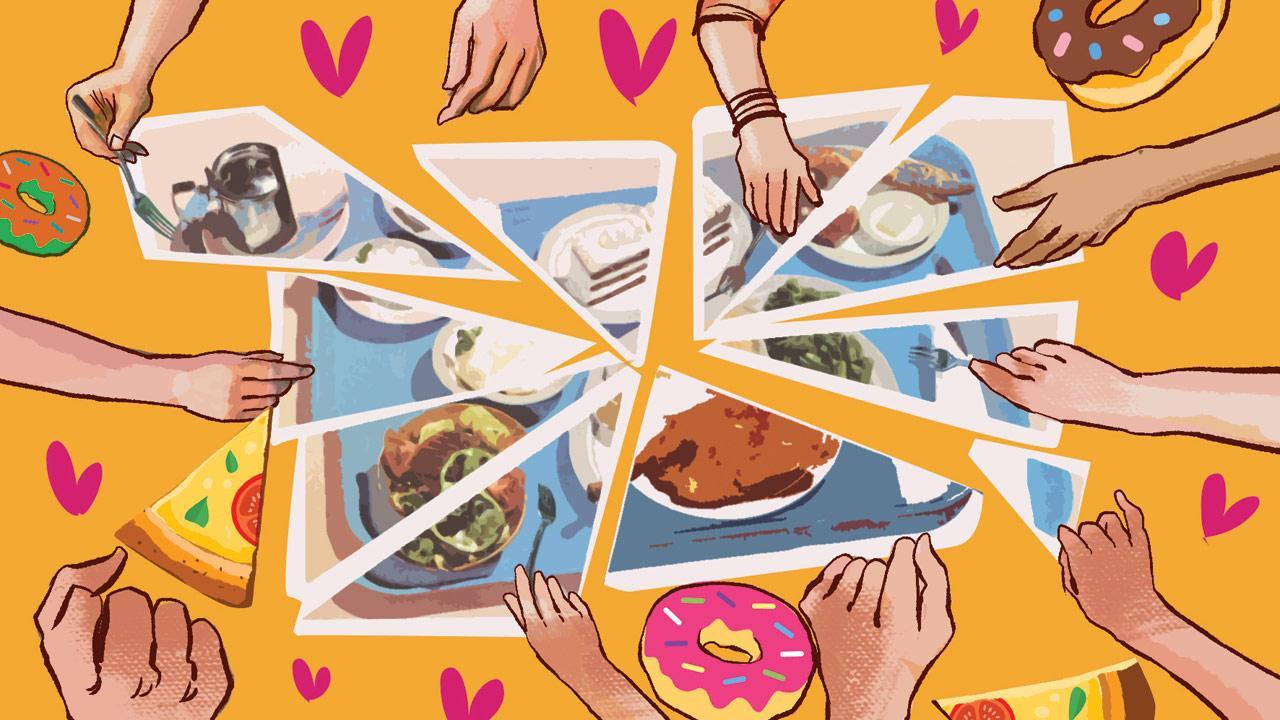It is hard this year-end, to take stock of the year past. Shorn of milestones, time became viscous and memories of May are elusive in December

Illustration/Uday Mohite
ADVERTISEMENT
![]() It is hard this year-end, to take stock of the year past. Shorn of milestones, time became viscous and memories of May are elusive in December. It's befuddling to answer the question "how are you?", because it's hard to know what have we held in, while we counted our blessings, (rightly) stoic about our anxieties and yearnings in the face of other people's far greater sufferings.
It is hard this year-end, to take stock of the year past. Shorn of milestones, time became viscous and memories of May are elusive in December. It's befuddling to answer the question "how are you?", because it's hard to know what have we held in, while we counted our blessings, (rightly) stoic about our anxieties and yearnings in the face of other people's far greater sufferings.
But, there is one thing I will take from this year-the vision of people sharing food.
It started with anti-CAA protests around Delhi. A Sikh group preparing a langar at Shaheen Bagh in solidarity. People bringing brownies and biryani, idlis and pakodas for protesters. Volunteers distributing water and tea. The pandemic unfastened this fulsomeness. Workers de-humanised by an uncaring lockdown walked hungry in the shimmering heat. Packets of food were thrown at the meagre trains taking them home from camps where they received stony khichdi and rotten vegetables.
But, ordinary people rushed in with generosity, where the state had been stingy. People made stacks of rotis for relief. People set up community kitchens and distribution networks, their efficiency a sign of their humane-ness. Someone made parathas and boiled eggs to be handed to walking workers on the highway. I wrote here about a man in Kolkata who contributed fish for the community kitchen so everyone could have something special on a festival day. A group in Gurugram made vats of kheer on Eid. In smaller ways, experienced cooks helped young folks who had never cooked, how to stock their kitchens and what to do with a baingan (the sabzi, not the emoji) through Facebook groups.
In this cold winter, the farmers protest around Delhi have grown bigger, and brought with them, langars, or community kitchens. On Christmas, a group of seven firemen from Sirsa saw a child, who didn't have any money, eyeing golgappas at a stall whose owner had made no sales all day. Buying his entire stock, the firemen started a golgappa langar on the spot. Earlier, a group of five students from Amritsar organised a pizza langar. One said they felt this was needed "to make the farmers feel loved and cared for".
I'm used to taking care of myself from a very young age. After five months of being absolutely alone, I met my family in a car, and we carried food for each other. That warm rice cooked by someone else flooded me with a feeling of care and I realised how vulnerable I had felt in the time alone.
Who knows what it means to be Indian? But, I know this: sharing of food is a way that we dignify ourselves and others across the land. Whatever our means, with this simple act we assert our belief in plenitude as a commitment to caring for each other, loved ones and strangers. It is in contrast to acts like banning beef and creating laws that take food off people's tables, the small-heartedness of those who mock and suspect this sharing of food.
Despite this miasma of stinginess that surrounds us of late, I will carry from this year into the next and the next, the light of those who fed others so they could feel cared for. It will enable me to answer the question "how are you?", "with theekthaak. I wish you the same."
Paromita Vohra is an award-winning Mumbai-based filmmaker, writer and curator working with fiction and non-fiction. Reach her at [email protected]
Keep scrolling to read more news
Catch up on all the latest Crime, National, International and Hatke news here. Also download the new mid-day Android and iOS apps to get latest updates.
Mid-Day is now on Telegram. Click here to join our channel (@middayinfomedialtd) and stay updated with the latest news
 Subscribe today by clicking the link and stay updated with the latest news!" Click here!
Subscribe today by clicking the link and stay updated with the latest news!" Click here!






